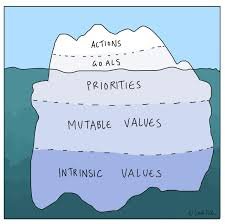
Time Mastery vs Management
Time management and time mastery are two distinct approaches to handling the limited resource of time. While time management focuses on organizing and prioritizing tasks efficiently, time mastery takes a more holistic and strategic perspective, aiming not just to manage time but to truly master it.
Time management involves tools and techniques to schedule, plan, and allocate time effectively. It emphasizes productivity and efficiency, ensuring that deadlines are met and tasks are completed within specified time frames. It is a valuable skill for navigating the demands of daily life and work.

On the other hand, time mastery delves deeper into understanding one’s priorities, values, and long-term goals. It encourages individuals to align their actions with their core values, making decisions that contribute to their overall well-being and fulfillment. Time mastery involves not just managing tasks but gaining control over one’s life and making conscious choices.

While time management is essential for meeting short-term goals and deadlines, time mastery goes beyond mere efficiency. It involves self-awareness, reflection, and a deeper understanding of how time is spent in alignment with one’s purpose.
Achieving time mastery can lead to a more balanced and meaningful life, fostering a sense of fulfillment and satisfaction beyond just ticking off tasks on a to-do list. In essence, time management is about doing things right, while time mastery is about doing the right things. Both are valuable, and a combination of both approaches can lead to a more harmonious and purposeful use of time.
Mastering Time in 5 Steps with the New Year in Mind!

Achieving time mastery involves a deliberate and strategic approach to how we allocate and prioritize our time. Here are five essential steps that can guide you towards mastering your time:
Define Your Priorities: Begin by clarifying your long-term goals, values, and what truly matters to you. Identify the activities and relationships that contribute to your overall well-being and fulfillment. By understanding your priorities, you can align your time with what is most meaningful, ensuring that you invest your energy in areas that resonate with your core values.
Create a Strategic Plan: Develop a comprehensive plan that outlines your short-term and long-term objectives. Break down larger goals into manageable tasks and set realistic deadlines. A strategic plan provides a roadmap for your journey towards time mastery, helping you stay focused and organized in the face of various commitments.
Practice Mindful Time Management: Mindfulness involves being present in the moment and fully engaged with your current task. Avoid multitasking and concentrate on one activity at a time. By immersing yourself in the present, you can enhance the quality of your work, reduce stress, and make more conscious choices about how you spend your time.
Learn to Say No: Recognize your limits and be willing to decline tasks or commitments that do not align with your priorities. Saying no is a powerful skill in time mastery, allowing you to safeguard your time for activities that truly matter. Prioritizing your own well-being is essential for maintaining balance and preventing burnout.
Regularly Evaluate and Adjust: Time mastery is an ongoing process that requires regular reflection and adjustment. Periodically assess your progress, reassess your priorities, and make necessary changes to your plan. Flexibility is key to adapting to new circumstances and ensuring that your time is consistently invested in activities that contribute to your overall sense of purpose and fulfillment.

In Conclusion:
By incorporating these steps into your daily life, you can move beyond mere time management and embark on a journey towards true time mastery. This holistic approach will empower you to not only manage your time efficiently but also live a more purposeful and satisfying life. Leaders must possess and illustrate mastery in order to expect their employees to present those qualities. As with all leadership skills, a leader must continually evolve if their organization is going to evolve. Having a coach can support leaders to discover their skills and and understand their deficits. Call me if you struggle with this area in your personal or professional life! A free 15 minute talk may be all you need to identify what is missing in your day to day schedule for successful mastery!
